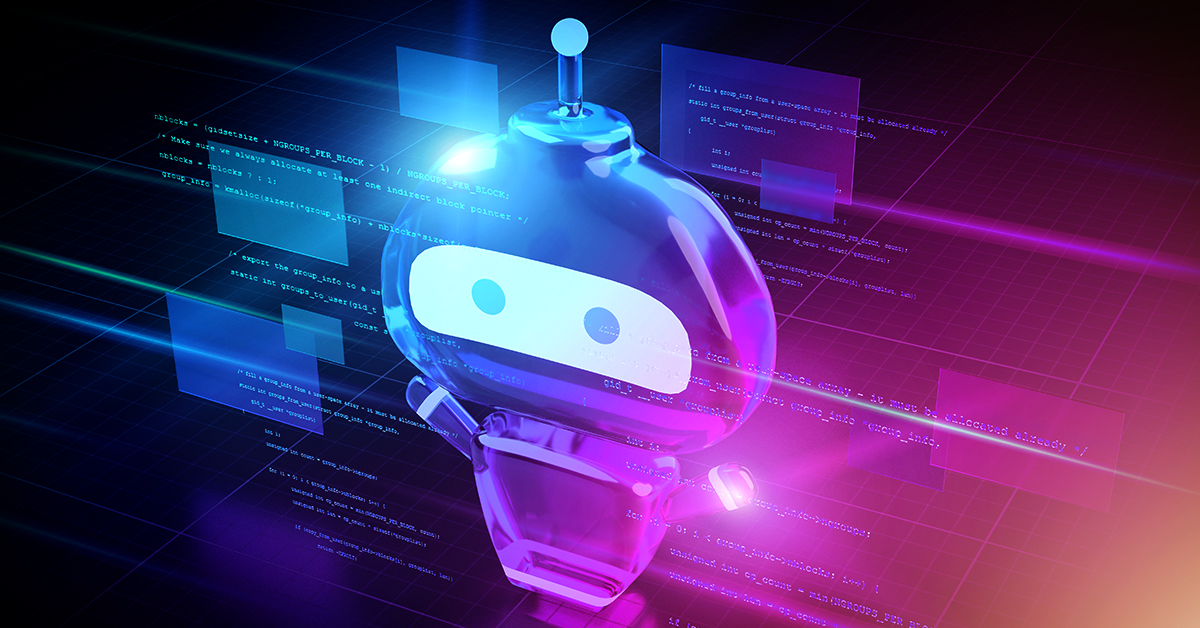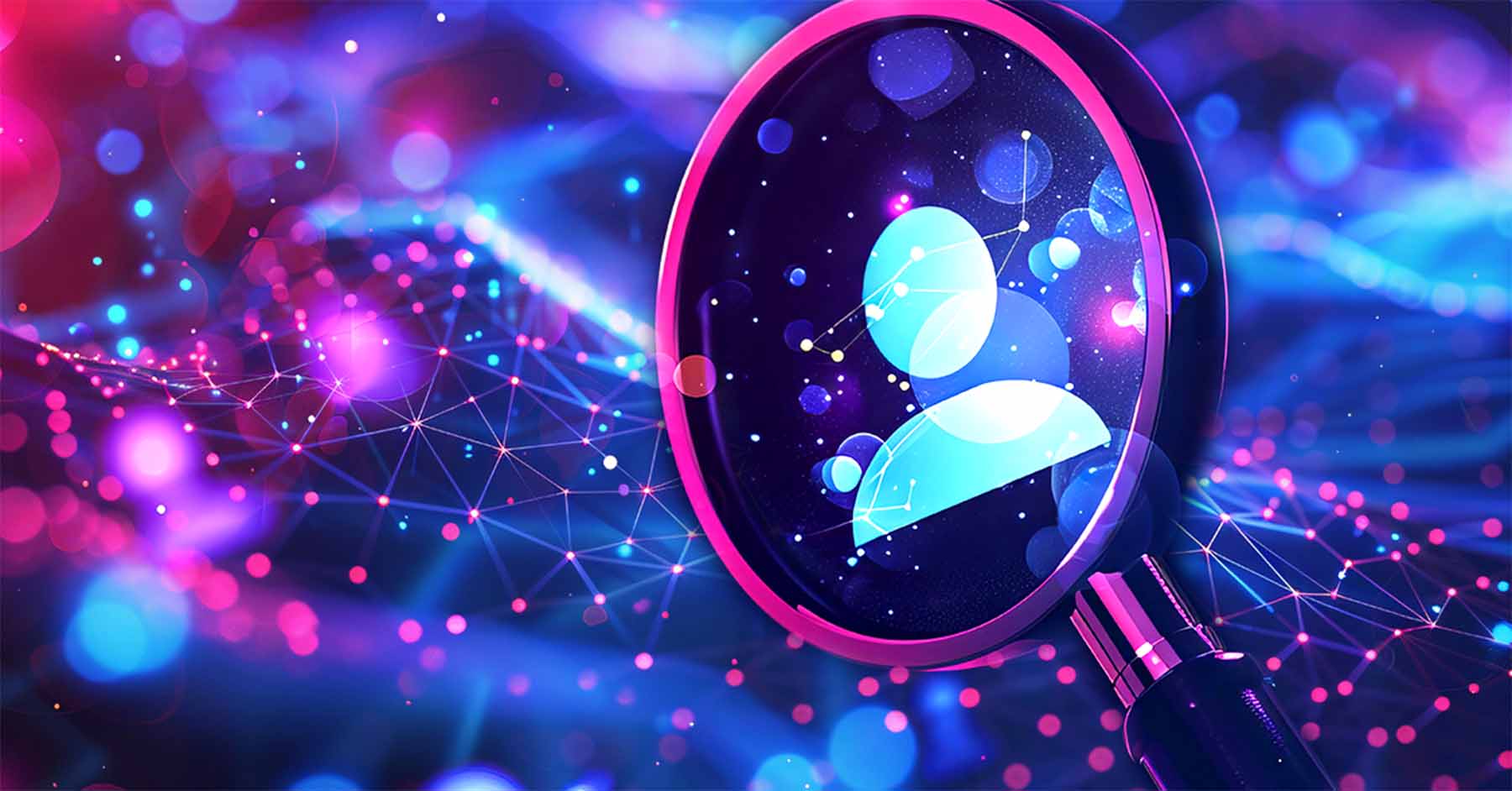- Service Desk Support Services
- AI


David Krauthamer • Staff Writer
Among the AI innovations making waves, generative AI chatbots stand out for their potential to revolutionize business operations. Unlike traditional rule-based bots, Generative AI chatbots can understand context, learn from interactions, and provide more human-like responses.
Enterprise organizations are increasingly adopting Generative AI chatbots to streamline operations, provide support for their workforce, enhance customer service, and improve overall productivity.
These chatbots can handle a variety of tasks, from answering FAQs to providing personalized support, making them invaluable in today’s fast-paced business environment.
According to Gartner, conversational AI will reduce contact center agent labor costs by $80 billion by 2026, while Salesforce’s generative AI assistant demonstrates the growing trend of automating complex customer interactions – highlighting the significant impact Generative AI can have on enterprise efficiency and cost savings.
If you’re an enterprise IT leader, understanding how to leverage these powerful tools can elevate your digital transformation strategy.
Let’s explore some of the benefits, challenges, and best practices for deploying Generative AI chatbots to enhance both the Digital Employee Experience (DEX) and Customer Experience (CX).
Enhancing DEX and CX with Generative AI
One of the most significant applications of generative AI chatbots is to enhance digital experience for employees and customers. These chatbots can handle a high volume of inquiries and offer users the following benefits:
- Instant Response and 24/7 Availability: Addressing queries promptly, even outside of regular business hours, reduces wait times and enhances user satisfaction.
- Personalized User Interactions: Generative AI chatbots excel at personalizing interactions based on user data. By analyzing previous conversations and user behavior, these chatbots can tailor responses to meet individual needs, creating a more engaging and satisfying experience.
- Handling Complex Queries: Unlike traditional bots, Generative AI chatbots can handle complex and nuanced queries. They use advanced language models to understand context and provide accurate, relevant responses, thereby improving the quality of support.
Boosting Operational Efficiency
Operational efficiency is a critical concern for enterprises, and generative AI chatbots offer a solution to common problem areas that often affect efficiency and productivity, including:
- Automating Routine Tasks: Generative AI chatbots can automate various routine tasks, freeing up human resources for higher-value activities. For example, they can handle appointment scheduling, order processing, and basic troubleshooting, significantly reducing employees’ workloads.
- Streamlining Workflows: By integrating with enterprise systems such as CRM and ERP, Generative AI chatbots can streamline workflows and ensure seamless information flow across departments. This integration enhances overall operational efficiency and reduces the chances of human error.
- Real-Time Data Analysis: These chatbots can analyze vast amounts of data in real time, providing valuable insights into user behavior and operational performance. Businesses can use this data to make informed decisions, optimize processes, and continuously improve services.
- Cost Savings and Scalability: Generative AI chatbots offer considerable cost-saving benefits, making them an attractive option for enterprises looking to optimize their budgets. They can easily scale to meet increased demand without the need for additional staffing, ensuring that enterprises can maintain high service levels even during peak periods.
Overcoming Challenges in AI Chatbot Integration
Deployment of AI chatbots comes with a set of challenges that must be carefully addressed to harness their full potential, such as:
- Ensuring Data Security and Privacy: One of the primary concerns with deploying AI chatbots is data security. Enterprises must implement robust security measures, such as encryption and role-based access controls, to protect sensitive customer and employee information.
- Maintaining a Human Touch: While AI chatbots can handle many tasks autonomously, they may lack the empathy and judgment required for certain interactions. Striking a balance between automation and human touch is essential to ensuring a positive customer and employee experience.
- Addressing Misaligned Responses: Generative AI chatbots are not infallible and can sometimes generate incorrect or inappropriate responses. Continuous monitoring and refinement of chatbot algorithms are necessary to maintain accuracy and reliability.
Best Practices for Implementing AI Chatbots
Organizations must adopt a proactive approach to the development and management of AI chatbots, including best practices such as:
- Comprehensive Training and Development: Ensuring that AI chatbots are well-trained is critical for their success. This involves feeding the chatbot with extensive data sets covering a wide range of scenarios and implementing continuous learning mechanisms to refine its performance over time.
- Active Monitoring and Human Oversight: Regular monitoring of chatbot interactions helps identify areas for improvement and ensures that errors are promptly addressed. Implementing strict permissions and active monitoring protocols can build trust and reduce risks.
- Continuous Improvement Strategies: The AI landscape is rapidly evolving, making continuous improvement a necessity. Enterprises should establish a feedback loop where data from chatbot interactions is used to refine and enhance the chatbot’s capabilities. This iterative process ensures that the chatbot remains relevant and effective in meeting business needs.
The Future of Generative AI in the Enterprise
The potential applications of Generative AI chatbots are vast and continuously expanding. From human resources to supply chain management, these chatbots can revolutionize various business functions, driving innovation and efficiency.
The integration of Generative AI with the Internet of Things (IoT) opens up new possibilities for automation and data analysis. Enterprises can leverage this to create smarter, more responsive systems that enhance both DEX and CX.
By implementing comprehensive training, active monitoring, and continuous improvement strategies, enterprises can effectively harness the power of generative AI chatbots to transform their operations and gain a competitive edge – elevating their digital transformation strategies and driving business success.
RecenT

9 Ways Strategic IT Staffing Empowers Organizations

Case Studies: Asset Intelligence and Endpoint Compliance Made Easy

AI and the Enterprise: The Future of IT Management

Exploring the Opportunities and Obstacles of AI in the Enterprise

One Dashboard to Rule Them All: Strategic IT Excellence with Full Lifecycle Observability

Transforming IT Operations with Full Lifecycle Observability: How Compucom’s FLO Framework Redefines Data-Driven Efficiency
TOPICS
Transforming the Enterprise with Generative AI Chatbots
- Service Desk Support Services
- AI

David Krauthamer • Staff Writer
Among the AI innovations making waves, generative AI chatbots stand out for their potential to revolutionize business operations. Unlike traditional rule-based bots, Generative AI chatbots can understand context, learn from interactions, and provide more human-like responses.
Enterprise organizations are increasingly adopting Generative AI chatbots to streamline operations, provide support for their workforce, enhance customer service, and improve overall productivity.
These chatbots can handle a variety of tasks, from answering FAQs to providing personalized support, making them invaluable in today’s fast-paced business environment.
According to Gartner, conversational AI will reduce contact center agent labor costs by $80 billion by 2026, while Salesforce’s generative AI assistant demonstrates the growing trend of automating complex customer interactions – highlighting the significant impact Generative AI can have on enterprise efficiency and cost savings.
If you’re an enterprise IT leader, understanding how to leverage these powerful tools can elevate your digital transformation strategy.
Let’s explore some of the benefits, challenges, and best practices for deploying Generative AI chatbots to enhance both the Digital Employee Experience (DEX) and Customer Experience (CX).
Enhancing DEX and CX with Generative AI
One of the most significant applications of generative AI chatbots is to enhance digital experience for employees and customers. These chatbots can handle a high volume of inquiries and offer users the following benefits:
- Instant Response and 24/7 Availability: Addressing queries promptly, even outside of regular business hours, reduces wait times and enhances user satisfaction.
- Personalized User Interactions: Generative AI chatbots excel at personalizing interactions based on user data. By analyzing previous conversations and user behavior, these chatbots can tailor responses to meet individual needs, creating a more engaging and satisfying experience.
- Handling Complex Queries: Unlike traditional bots, Generative AI chatbots can handle complex and nuanced queries. They use advanced language models to understand context and provide accurate, relevant responses, thereby improving the quality of support.
Boosting Operational Efficiency
Operational efficiency is a critical concern for enterprises, and generative AI chatbots offer a solution to common problem areas that often affect efficiency and productivity, including:
- Automating Routine Tasks: Generative AI chatbots can automate various routine tasks, freeing up human resources for higher-value activities. For example, they can handle appointment scheduling, order processing, and basic troubleshooting, significantly reducing employees’ workloads.
- Streamlining Workflows: By integrating with enterprise systems such as CRM and ERP, Generative AI chatbots can streamline workflows and ensure seamless information flow across departments. This integration enhances overall operational efficiency and reduces the chances of human error.
- Real-Time Data Analysis: These chatbots can analyze vast amounts of data in real time, providing valuable insights into user behavior and operational performance. Businesses can use this data to make informed decisions, optimize processes, and continuously improve services.
- Cost Savings and Scalability: Generative AI chatbots offer considerable cost-saving benefits, making them an attractive option for enterprises looking to optimize their budgets. They can easily scale to meet increased demand without the need for additional staffing, ensuring that enterprises can maintain high service levels even during peak periods.
Overcoming Challenges in AI Chatbot Integration
Deployment of AI chatbots comes with a set of challenges that must be carefully addressed to harness their full potential, such as:
- Ensuring Data Security and Privacy: One of the primary concerns with deploying AI chatbots is data security. Enterprises must implement robust security measures, such as encryption and role-based access controls, to protect sensitive customer and employee information.
- Maintaining a Human Touch: While AI chatbots can handle many tasks autonomously, they may lack the empathy and judgment required for certain interactions. Striking a balance between automation and human touch is essential to ensuring a positive customer and employee experience.
- Addressing Misaligned Responses: Generative AI chatbots are not infallible and can sometimes generate incorrect or inappropriate responses. Continuous monitoring and refinement of chatbot algorithms are necessary to maintain accuracy and reliability.
Best Practices for Implementing AI Chatbots
Organizations must adopt a proactive approach to the development and management of AI chatbots, including best practices such as:
- Comprehensive Training and Development: Ensuring that AI chatbots are well-trained is critical for their success. This involves feeding the chatbot with extensive data sets covering a wide range of scenarios and implementing continuous learning mechanisms to refine its performance over time.
- Active Monitoring and Human Oversight: Regular monitoring of chatbot interactions helps identify areas for improvement and ensures that errors are promptly addressed. Implementing strict permissions and active monitoring protocols can build trust and reduce risks.
- Continuous Improvement Strategies: The AI landscape is rapidly evolving, making continuous improvement a necessity. Enterprises should establish a feedback loop where data from chatbot interactions is used to refine and enhance the chatbot’s capabilities. This iterative process ensures that the chatbot remains relevant and effective in meeting business needs.
The Future of Generative AI in the Enterprise
The potential applications of Generative AI chatbots are vast and continuously expanding. From human resources to supply chain management, these chatbots can revolutionize various business functions, driving innovation and efficiency.
The integration of Generative AI with the Internet of Things (IoT) opens up new possibilities for automation and data analysis. Enterprises can leverage this to create smarter, more responsive systems that enhance both DEX and CX.
By implementing comprehensive training, active monitoring, and continuous improvement strategies, enterprises can effectively harness the power of generative AI chatbots to transform their operations and gain a competitive edge – elevating their digital transformation strategies and driving business success.
Recent Blogs

9 Ways Strategic IT Staffing Empowers Organizations

Case Studies: Asset Intelligence and Endpoint Compliance Made Easy

AI and the Enterprise: The Future of IT Management

Exploring the Opportunities and Obstacles of AI in the Enterprise

One Dashboard to Rule Them All: Strategic IT Excellence with Full Lifecycle Observability




